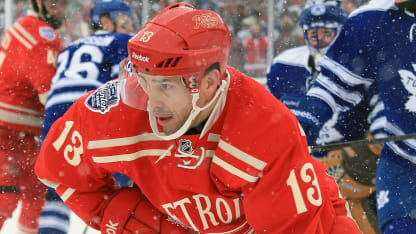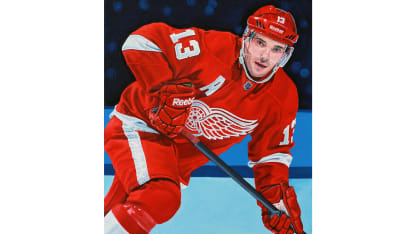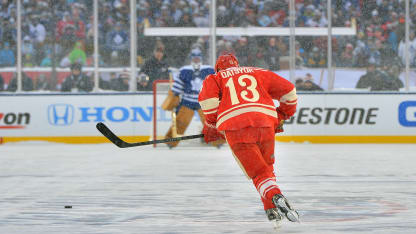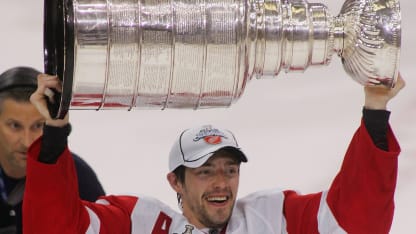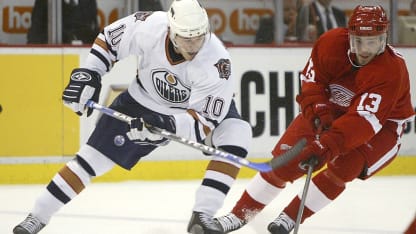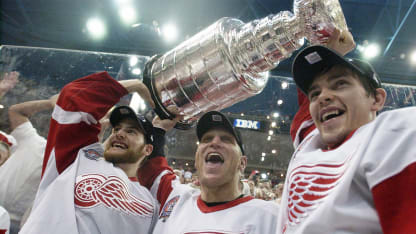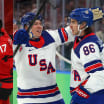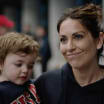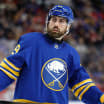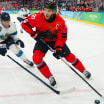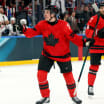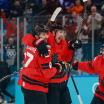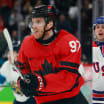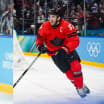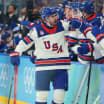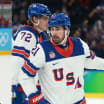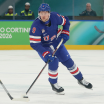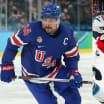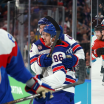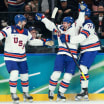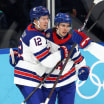His two-way play earned him the Selke Trophy three times as the NHL's best defensive forward, and he won the Lady Byng Trophy four times for sportsmanship, a testament to his ability to play tough but clean.
He won or tied for Detroit's scoring lead six consecutive seasons (2003-10) and twice was among the NHL's top five scorers, with consecutive 97-point seasons in '07-08 and '08-09. In 953 career games, he had 314 goals and 604 assists. He had another 42 goals and 71 assists in 157 playoff games.
But Datsyuk's brilliance was never about numbers. "He's a player who probably doesn't fulfill his offensive potential because he's so committed defensively," Holland said in the book "100 Things Red Wings Fans Should Know & Do Before They Die" by Kevin Allen and Bob Duff. "He's as hard on the backcheck as he is chasing the puck on offense. His hockey IQ is off the charts. He has incredible will and determination. He's irreplaceable."
"If he scored no goals and had no assists, he'd still be one of the best players in the League," Don Waddell, then the Atlanta Thrashers GM, told Sports Illustrated. "He's one of the all-time best at playing both ends of the ice."
That 200-foot talent placed him in the debate over who was the NHL's best player of the new millennium. Was it Datsyuk, Ovechkin, Evgeni Malkin or Sidney Crosby? The other three routinely outscored him, but his coach had no doubt.
"If you're down a goal in the last minute, who do you want out there: Ovechkin, Crosby, Malkin or Datsyuk?" Babcock said. "Any of them. But if you're up a goal in the last minute and need to protect the lead, who would you want? You'd want Pav."
After crunching some numbers, Sports Illustrated's Michael Farber determined late in the 2008-09 season that Datsyuk, though he played fewer power-play minutes and was used often against top opposition forwards -- and thus got "significantly fewer minutes in prime scoring time" -- still was averaging more points per minute than either Ovechkin or Malkin.
Datsyuk was born July 20, 1978, in the large Soviet Union city of Sverdlovsk, now called Yekaterinburg, about 900 miles east of Moscow. His parents died when he was in his teens and he threw himself into sports, mostly hockey and soccer, playing for various Yekaterinburg clubs. "He learned to anticipate hockey moves by playing chess several hours a week, and he developed outstanding balance and his ability to control pucks with his skates by playing ice soccer," Brian Cazeneuve wrote in Sports Illustrated.
He was never particularly big nor prolific and he went unnoticed by NHL scouts in his first two draft-eligible years. But in 1997, Red Wings scout Hakan Andersson stumbled on him while evaluating another player, impressed by the 19-year-old Datsyuk's over-the-top efforts at backchecking and breaking up plays.
